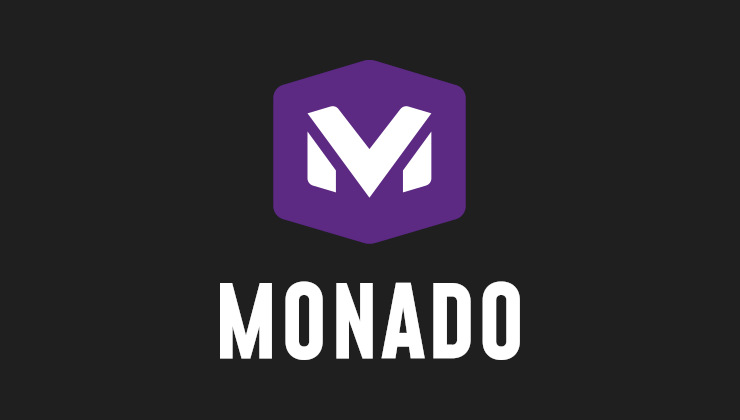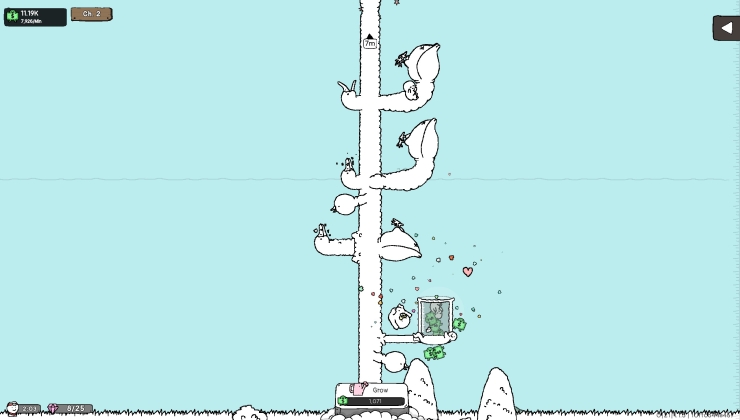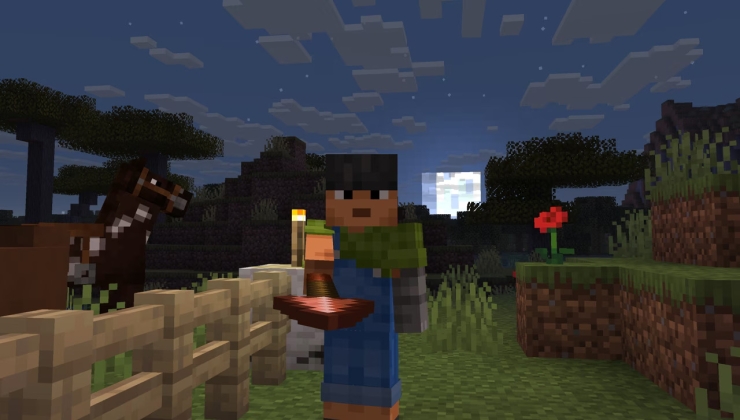Well folks a lot of you saw this one coming, GOG.com have officially responded to us to state that Linux support just isn't happening anytime soon. Quite sad news really, was hopefull on this one since they are such a big name and a pretty decent store too.
Here's the message I got from Trevor Longino, their Head of PR and Marketing, with thanks to Piotr Szczesniak who also works in the PR dept.
So folks no matter the hints, you have it direct from their PR head.
This line is the bit that gets me:
It has often bugged me just how many distributions there are, but it's more of a problem with their own policies of refunding if they cannot get it to work for you which is a good policy, but on Linux it is fair enough that it could be trouble for them when someone tries to install x game on "Look Ma I Built A Distro v4" that has some crazy new configuration somewhere.
I will just leave this here:

UPDATE #1, I asked if it was basically the amount of distro's and how often they are updated that's really the issue:
So a long winded answer to basically say "Yes Linux is updated too often for us".
Strikes me as odd since even Windows which was once known for being exceptionally slow to make major OS updates has committed itself to having a much more regular release schedule now, along with Mac having yearly releases.
So, I have asked about that as well and I have also pointed out that Ubuntu for example has LTS (Long Term Support) releases which are meant for things like this, so people don't have to update every 6 months.
UPDATE #2:
About his Mac point - It was one every other year back in 2009 but Mac now does yearly updates, 2011, 2012 and 2013 will have all had Mac OS X releases and they have said it will be yearly.
So basically guys, if you're looking for native Linux support out of the box you'll have to look elsewhere than GOG for now.
We have Steam, Desura, Gameolith, ShinyLoot, FireFlower Games and one day soon IndieCity too. One day GOG.com may support us and I will thank them when they do and we can put all this to rest!
I hope one day they support us but considering their answers I don't ever see it happening.
Here's the message I got from Trevor Longino, their Head of PR and Marketing, with thanks to Piotr Szczesniak who also works in the PR dept.
Trevor Longino GOG.comHi Liam,
Unfortunately not much has changed in our stance towards supporting Linux in the last few months and there is one main reason for that. Since our birth over 5 years ago we have always provided full customer support for all games we have released. That is not going to change. For every game we release we provide a money-back guarantee: if we can't get the game working on the customer's computer with the help of our support team, we return the money. The architecture of Linux with many common distros, each of them updating fairly often, makes it incredibly challenging for any digital distribution company to be able to properly test the game in question, and then provide support for the release--all of which our users are accustomed to.
Sure, we could probably release a client and sell the games and let Linux users worry about the rest. We don't consider it, however, a viable option for the business model we have followed so far. Apparently our model has its drawbacks, as we cannot make everyone happy, but, as of now, we don't plan on introducing Linux support in the foreseeable future.
So folks no matter the hints, you have it direct from their PR head.
This line is the bit that gets me:
QuoteThe architecture of Linux with many common distros, each of them updating fairly often, makes it incredibly challenging for any digital distribution company to be able to properly test the game in question, and then provide support for the release--all of which our users are accustomed to
It has often bugged me just how many distributions there are, but it's more of a problem with their own policies of refunding if they cannot get it to work for you which is a good policy, but on Linux it is fair enough that it could be trouble for them when someone tries to install x game on "Look Ma I Built A Distro v4" that has some crazy new configuration somewhere.
I will just leave this here:

UPDATE #1, I asked if it was basically the amount of distro's and how often they are updated that's really the issue:
Piotr Szczesniak GOG.comIt's a bit more than that.
There are a number of distros. We can support just one (which is how Steam is doing it), but since we believe strongly in freedom of choice, that's not our preference. On the other hand, supporting everything in the world is more burden than any business could assume So, the last time we looked into this, we investigated supporting three common ones: Mint, Debian, and Google's Chrome OS. We researched the number of OS updates, how often they occurred, when (and how frequently) various libraries are surpassed and deprecated. We then researched how often, for example, updates to these versions of Linux caused problems with DOSBox, SCUMMVM, and other tools that we make use of for our remastering process.
There is a difference in GOG.com's business model from Steam or any other distributor out there. *We* are on the hook for support of these games. And we update our support as the OSes that our games are running on are updated. That means that, unlike a developer or any other distributor, when we release on a Linux distro, we don't have to test once and then we're done. Each time there is a major update in an OS that we support that changes compatibility, we have to devote substantial time and resources to updating our catalog to work with the update. Sometimes, it may even occur that we cannot fix it in-house but rather have to spend the money to get it fixed by outside resources or else we'd have to remove the compatibility for the game from its game card. Imagine if we had 400 games from our 600+ game catalog supported on Linux and we found that a third of them no longer worked in a distro that we supported. Imagine the time and effort that would go into re-building 130 games.
Now take that kind of time and effort--time and effort that is not required by other OSes except on a one every four or five years' basis--and think of the cost we associate with it vs. the possible revenue that we might earn from Linux. Even if, on average, a Linux distro only has big updates as often as, say, Mac OSX does (every four or so years), unless these big updates are synchronized across the distros (which, historically, they're not) that means we're seeing the need to remaster some of our games every 14 - 16 months.
Until we can figure out something like a better way to automate testing and building games for GOG.com, there's no way that the economics of Linux support make sense for us. That said, we do know that there are plenty of people who want to be able to play their games with Linux-native support from us, and we continue to look for ways where we can automate this until it reaches a point where it is something that we believe we can do and not lose money at it.
So a long winded answer to basically say "Yes Linux is updated too often for us".
Strikes me as odd since even Windows which was once known for being exceptionally slow to make major OS updates has committed itself to having a much more regular release schedule now, along with Mac having yearly releases.
So, I have asked about that as well and I have also pointed out that Ubuntu for example has LTS (Long Term Support) releases which are meant for things like this, so people don't have to update every 6 months.
UPDATE #2:
Piotr Szczesniak GOG.comNo, it's not.
One, because Windows' faster releases are promised, but I'll believe it when I see it. As for Mac OS: "The desktop-oriented version, OS X, followed in March 2001 supporting the new Aqua user interface. Since then, seven more distinct "end-user" and "server" versions have been released." (seven versions released over 12 years or about one every other year).
Also, as I just noted below, to support Linux in a manner that we feel is consistent with our standards, we would need to support three distros each of which sticks to its own schedule and period for updates, and each of which brings in a tiny part of the revenue of Windows or even Mac. So, as I noted, it's a question of economics. Until we solve things our own end for how to make this scale economically, I don't see it happening any time soon. That said, we are investigating how to do this for a variety of issues beyond Linux support, so don't give up hope. Just don't expect it tomorrow, either.
About his Mac point - It was one every other year back in 2009 but Mac now does yearly updates, 2011, 2012 and 2013 will have all had Mac OS X releases and they have said it will be yearly.
So basically guys, if you're looking for native Linux support out of the box you'll have to look elsewhere than GOG for now.
We have Steam, Desura, Gameolith, ShinyLoot, FireFlower Games and one day soon IndieCity too. One day GOG.com may support us and I will thank them when they do and we can put all this to rest!
I hope one day they support us but considering their answers I don't ever see it happening.
Some you may have missed, popular articles from the last month:
All posts need to follow our rules. Please hit the Report Flag icon on any post that breaks the rules or contains illegal / harmful content. Readers can also email us for any issues or concerns.
Quoting: Penguin PusherAnyway. What I wanted to show is that Valve is capable in supporting old games on Linux, while GOG is hiding behind a wall of excuses.I think you miss the point. The bulk of all these discussions is not about difficulties with supporting DOS games (which is pretty trivial given the wide availability of ScummVM and DosBox). It's about difficulties (whether real or perceived) with supporting native Linux games.
For all I care, there is practically no need in additional support for DOS games on GOG for Linux users. You can download them as is, unpack with innoextract, adjust config files and run them in your DosBox / ScummVM. "Support" from GOG here would be mere convenience and maintaining separate config files for Linux, Mac OSX and Windows when needed. Native Linux games support is a completely different beast altogether, and lacking native Linux games is a serious problem in comparison with little inconvenience of tweaking DosBox config files.
0 Likes
Debian, Ubuntu, ArchLinux support please !!!!
Steam support Linux, Desura support Linux and still not GOG ? Bad !!!!
Steam support Linux, Desura support Linux and still not GOG ? Bad !!!!
0 Likes





 How to setup OpenMW for modern Morrowind on Linux / SteamOS and Steam Deck
How to setup OpenMW for modern Morrowind on Linux / SteamOS and Steam Deck How to install Hollow Knight: Silksong mods on Linux, SteamOS and Steam Deck
How to install Hollow Knight: Silksong mods on Linux, SteamOS and Steam Deck